The Handmaid's Tale: The Tragedy of Luke Bankole
Often when we think of love in our culture, we think of sex, sweaty bodies joined together, electric touch, or pillow talk--two lovers basking in the afterglow, surging with oxytocin. Many of us will spend our lives chasing that feeling, struggling to find someone that makes us feel that way for the rest of our lives. We move from one relationship to another, running at the first sign of trouble. Everything needs to be seamless, and they need to have all of the right qualities. Too many turnoffs, and it's not worth our time.
In sickness and in health are old terms used by a failing institution. We don't want to stick around and let someone ruin our lives. We feel no responsibility to do so. There's no stigma against divorce or breakups. Why be with someone when they're stuck in chemotherapy? Don't we have needs? What if the magic is gone and we're no longer attracted to them? Trade them in for someone younger. Kick them to the curb, never mind what they want. We matter too.
But love isn't a feeling. It's not an orgasm every night and the perfect conversation every time you're together. We can't constantly sync up with the one that we care about. That will never happen. Anyone who thinks otherwise is chasing a dream. True love takes work, and it doesn't fade because your spouse gained ten pounds or injured themselves. It about building something together, a life, a family, and success, and having a hand to hold in your last moments. There's nothing more rewarding than sharing your life with somebody.
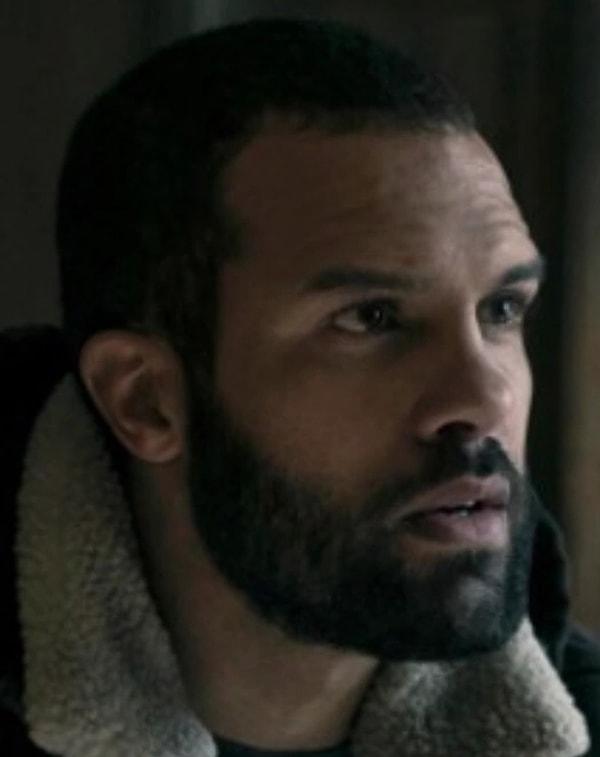
Courtesy of Hulu
Estrangement
Our culture may have changed. Many of us reject the institution of marriage, and few see anything wrong with divorce. But some people still understand love. Luke Bankole, for all of his faults, is one of them. It is true that he left his wife for June. But not everyone can handle a relationship. They're too toxic, too selfish, and too abusive. People aren't always compatible with one another. They fight. Their personalities clash, and it makes life hell.
It's better to be with someone that you truly care about than to waste your life with someone you hate. There's absolutely nothing wrong with that. It's healthy to leave when you know that things aren't working or your spouse is causing you pain. That doesn't mean you're incapable of monogamy or too immature for commitment. It means you're willing to make a hard choice and do what's right for yourself and often the person you're with. It shows maturity and strength, and Luke has all of those things.
At first, he was just a memory. He'd come during those quiet moments when June would be held captive in her room. Her mind would race, and she'd think of everything she lost in her former life. He'd be there smiling with his cute dimples, running through the sand after Hannah on their trip to the beach, or he'd gawk at the jellyfish in the aquarium. June would mourn. She believed that she would be a slave for the rest of her life. She'd always have some old man lusting after her, an aunt jumping down her throat, and some stuck-up wife raging over her presence in the household. Her old life was gone. She couldn't accept that. She was happy; Luke made her happy. He was good. He cared about her. He didn't run for his life when things got hard, he struggled to get them to Canada, and at first we thought he was killed for it.
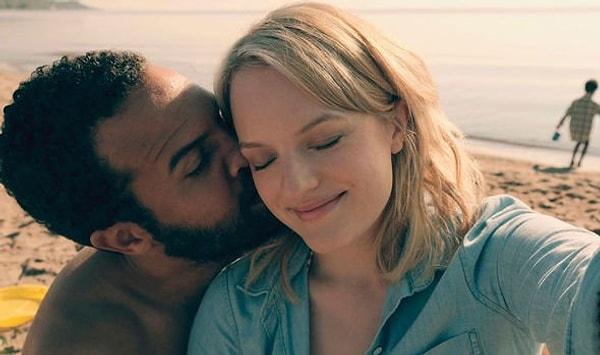
Courtesy of Hulu
All we knew in the beginning was that June heard a gunshot. Then her daughter was taken away and she was enslaved. She was robbed of everything. He became an unobtainable prize taunting her from an impossible past. But he didn't die. He was dragged into an ambulance, handcuffed by guardians and placed on a gurney. They were rushing to get him help when the ambulance flipped upside down.
To him, it didn't matter that he'd been shot. He had to get to June. He got himself free, stole a gun and a uniform from the guardians, and staggered all the way to a nearby village, bleeding from his stomach. Imagine the strength and fortitude it must have taken to walk all that way, only to collapse in some defunct gas station, unable to take another step. It may have been miles, but he kept going. He didn't stop until his body forced him to. Even then, he planned on finding her and rescuing her.
He was picked up by a small dissident group. They bandaged him up, gave him drugs for the pain, and loaded him onto a bus. The second he found out they were going to Canada, he stood up, ignoring his gunshot wound. He didn't care about himself or what he felt at that moment; he only cared about finding his wife and daughter.
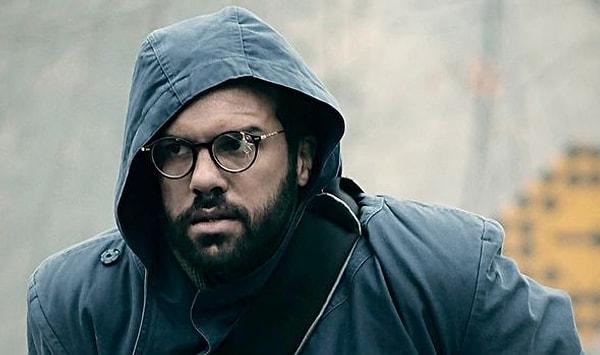
Courtesy of Hulu
There was a level of naivety on Luke's part. That can't be denied, but he's not at fault. When they decided to leave, they watched the rise of fascism. Guardians would patrol the streets. They'd stop people, kill them, and round them up. Life had grown to a halt. Women were banned from working; their assets had been seized, and there were all sorts of strange laws and policies. He knew enough to be scared, but he hadn't seen the real carnage that was to come. Arizona wasn't an irradiated wasteland. The holocaust was still just a plan, and the dread force that was Gilead hadn't fully taken hold.
The country looked very much like it used to. There were cars on the streets, skyscrapers, and road signs. Nobody wore uniforms. People still had some measure of freedom. They could move around the city, go for breakfast, and carry on with their lives. The war hadn't fully begun. They didn't even know what handmaids were. There were no marthas. Nobody knew what the new regime would be called or who the leaders would be. Gilead, by all rights, didn't even exist. It was just a small cabal secretly dubbed the Sons of Jacob.
He had seen armies in the streets, but he had no idea how effective they were or how ruthless they could be. So it made sense that from his perspective he could somehow find his wife and rescue her, and even if it didn't make sense, he was going to do it. He loved June. He was also hearing rumors about fertile women who were being gathered up. One of the girls that was traveling with the group had a red cattle tag on her ear. Nobody knew what they were doing. They just knew it was a human rights atrocity. He couldn't let June face that same fate.
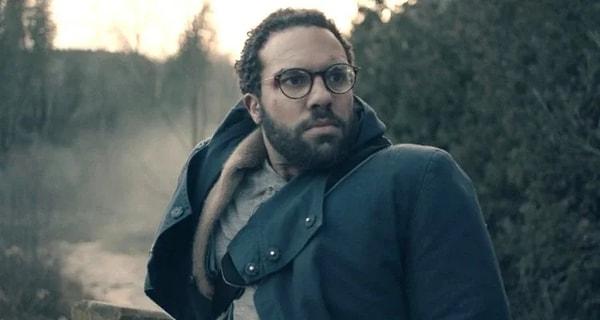
Courtesy of Hulu
Luke was adamant about going back for June. He insisted and even pulled out his gun, yelling at them to stop. It was reckless, but it was also a sign of his undying devotion. The woman he loved was in trouble, and he was willing to do anything to help her. The only reason he decided to go with them was because he didn't really have any other choice. The leader of the group pulled him aside and brought him into a church, where the bodies of dissidents--who had die protecting the women in their village--were hanging from the rafters. She said, 'That is what they do to people who fight back.'
Luke never really got that message, even five years later. He never saw Gilead. He'd never had a guardian in his face. He was never asked to wear a uniform. The war didn't start until he left the country. His reaction was heartbreaking. He'd drink all day, go on political rants, and spend his time pining after June. He couldn't live in a world where she was a prisoner in Gilead. He couldn't cope with that. So he dulled his senses. He made up possibilities in his mind and told himself that she was alive. He knew that she was. He also knew the situation she was in.
News started trickling across the border. Fertile women were being enslaved by Gilead's elite--violated by old men--turned into house slaves, or made to work in the irradiated colonies if they refused. How do you live with that--knowing that she was a slave? His daughter was stolen from him. Alcohol would've been his only comfort--a few moments with a warm glow, the world spinning, and then his mood would change, and his thoughts would grow dark. He wouldn't be able to leave the moment that she was taken away from him. Sometimes death might have been preferable to that life, and things would only get worse as time went on and the alcohol began to change him. He'd wake up with a wild headache, sunlight piercing his eyes, tears ready to flow, and he'd reach for a drink. He wouldn't have been able to function otherwise, and he didn't function. He took random construction jobs and collected refugee assistance. It was a wonder he was able to maintain housing. A career was out of the question.
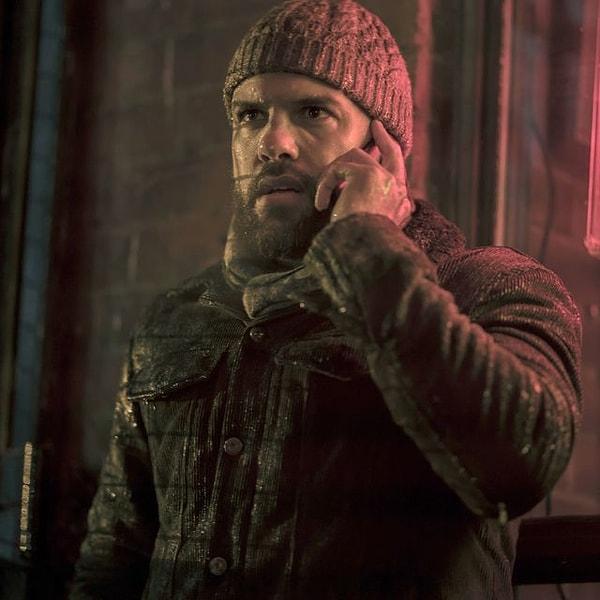
Courtesy of Hulu
The Fight
Luke did fight, and he did so in a way that we haven't seen in the series before. It's actually quite genius. He trolled the American embassy, flagging down everyone that he could find. He scoured records and struggled to get information. He hunted down everyone who had resources, and he was persistent. He told June that everyone at the embassy ran when they saw him. He also learned how to utilize what few legitimate resources he had at his disposal. In a world of vigilantes and dissident movements, he was the one who could get buildings shut down. He was able to find information on Hannah and June. He built contacts, and while he didn't get very far, it gave him the ability to network. There were times when he could get things done.
He has been criticized in the past for not doing more. Serena confronted him and asked him why he didn't go to Gilead and find June himself. Sometimes it's hard for people to understand Gilead and what it was like, especially the level of control they had over people. We'll often see people blamed for inaction when really they couldn't act, because it would put their life in danger.
Gilead was heavily patrolled. Walking through a city required ID cards and proper uniforms. There were many areas that were off-limits to different classes. In season 3, when June dressed as a martha, we saw that everyone was frisked and searched. People didn't have anything resembling freedom of movement. There were roadblocks everywhere, making it difficult to leave a city or travel by car. It seemed like the commanders were the only ones who could drive. They also had guardians posted in the home, on every neighborhood street corner. Sometimes they'd post guard towers, as well as regular foot and traffic patrols. Luke didn't know all of this. He never actually saw Gilead, and he was shocked at the few things he did see. But he knew well enough to stay put. He never would've made it out of Gilead alive. He cannot be blamed for staying in Canada any more than June could be blamed for staying in Gilead.
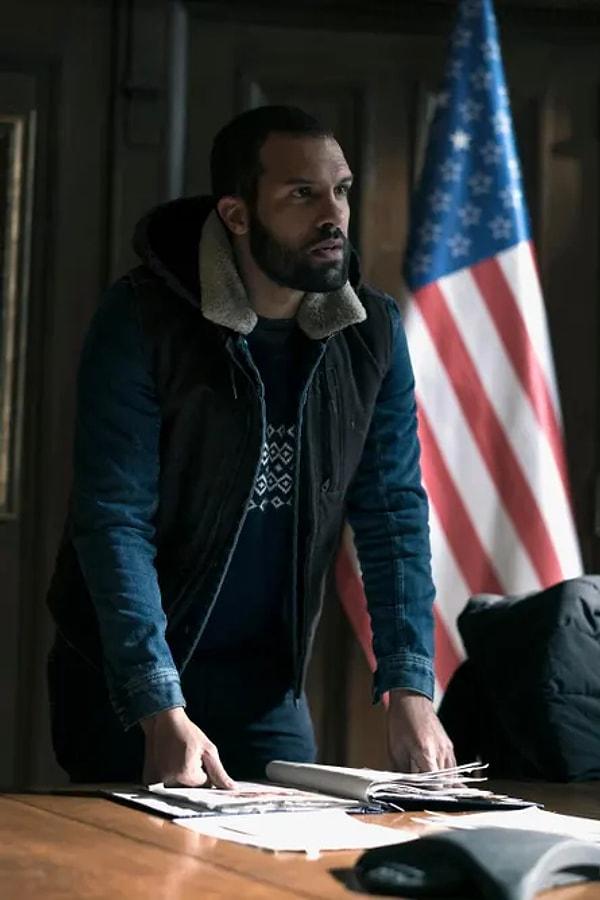
Courtesy of Hulu
Luke spent years blaming himself, drinking himself into oblivion. He took his own powerlessness personally. He was a man. He was supposed to be strong, and he couldn't go save his wife. That cut him to his core. It eroded his self-esteem, taunting him like June's memories taunted her. To him, she wasn't just enslaved. She was abandoned by her husband who chose to go to Canada without her. He blamed himself for what happened to her.
This subject couldn't be addressed without an emotional response. When people told him to be a man or they said that he did nothing, he'd get this look; it was like he was ready to start rampaging, throwing decorations, and shrieking at everyone. We saw that in the most recent season. He smiled, and for a second it almost seemed like he was going to lash out, and it wasn't just the enslavement.
He loved June with everything he had--everything, and then she sent him an old tape, given to him by Serena. She told him about Nick and Nicole and what happened between them. Not only did he lose his wife, someone else had taken him from her, and now he was raising their child. At first he was complacent with Nicole. He'd drink and let Moira take the responsibility. She'd play with her, shower her, and feed her. But it didn't take long for him to step in and do the right thing, and the fact that he was able to do that said something about who he was.
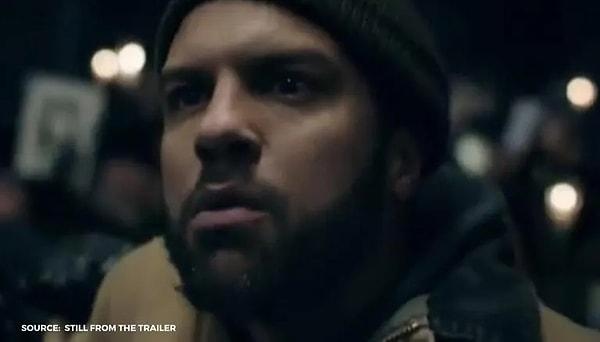
Courtesy of Hulu
Luke was willing to step outside the confines of the law at times. When he saw coverage of the Waterfords' trip to Canada, he went to the embassy begged for help. But they had no power. So he took the initiative himself and he pushed through a crowd of protesters--braving security and law enforcement--to confront Fred. He could've gotten arrested or worse. He might've been seen as a threat and shot, but he did it anyway, and he made his message clear: There would be a reckoning.
In a sense, there was a reckoning. When Serena opened up the Gilead Information Center, hoping to convert Canadians to her cause, he was able to get the building closed down, forcing her to flee to the Wheeler's where she was held prisoner as their defacto handmaid. Had she not been able to find refuge there, she would've been deported back to Gilead. After she had Noah, he had her sent to an immigration detention center. She was separated from her child, detained in a prison-style environment, and eventually sent back to the Wheelers. It was one of Serena's lowest moments, and he orchestrated it.
Sometimes he was brave and sometimes he was recklessness. But there was always a spirit of undivided devotion. He was willing to enter Gilead to find information on Hannah's school. That was a step that most people wouldn't have dreamed of taking, and while he was not prepared, he was willing to do whatever it took to make things work.
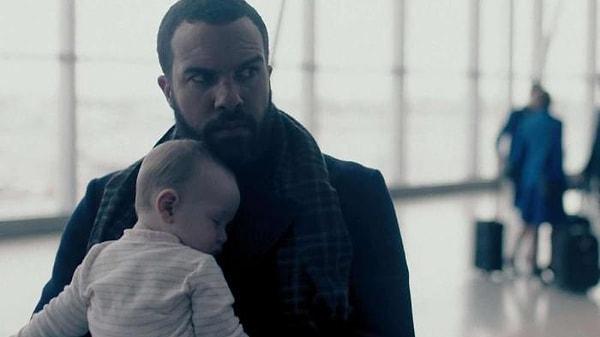
Courtesy of Hulu
Devotion
Luke spent four years without his wife, and he spent every second thinking about her, wondering what she was going through. He knew that she wasn't OK. We don't know everything that went behind the scenes. But there was nobody else. He didn't have a girlfriend or probably even a lover. He spent his time focused on June, and when he finally found her--and her got to hold her in his arms--he didn't let go.
It was harder than most would think. June had severe post-traumatic stress disorder. Sometimes she would lose sight of what was real and have flashbacks to her time in Gilead. In the grocery store, she mistook a pair of Muslim hijabis for handmaids. She saw Alma staring at her between the shelves. She thought she was back in Fred's office when she saw a scrabble game.
Her obsessive thinking would've been a chore. Sometimes she had to talk about Gilead. She had to go back to that place. She baited Rita, reminding her of the time that Serena slapped her. She'd obsess over Fred. She'd become so absorbed by her trauma that she'd get this strange look on her face, like a toad frowning. There were times when she shook, and she'd say strange things. She was extraordinarily lucky. Many victims of human rights atrocities don't come back. They spend their time stuck in that moment, unable to leave. They'll suddenly start screaming and, attacking people and knocking things over. But June was what they call 'high-functioning.' She could perform daily tasks. It still took a toll on her relationship. In bed, she was different. To her, it was about power and control. She'd cover his mouth with her hand and keep going when she shouldn't have. It disturbed him.
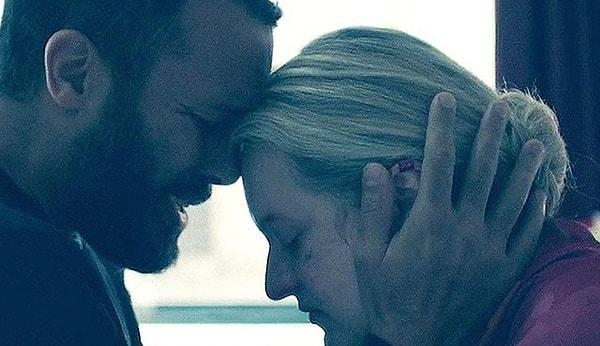
Courtesy of Hulu
Luke caught on to her mental illness right away. He knew that she was having obsessive thinking, that she couldn't just let Fred be. It seemed to scare him. There would be a hint of patronization in his tone. He might've been scared of her. But he didn't give up. When June was in the police station after killing Fred, he got down on his knees, and he said everything he could to stop her from turning himself in. He was willing to see things through knowing that she had just torn someone apart with his bare hands. He wasn't going to lose her. That was the epitome of devotion.
There was a moment when he'd second-guess things. He didn't know how much more he could take. But he had spent years wanting her, and she was there. So he took a win, and he stuck by her side. It was inspiring. In the end, when her obsession got the better of her and she showed up at the Gilead Information Center with a gun, he didn't turn his back. He saw how powerful she was, how beautiful, and what she was capable of doing.
That night, they made love. She caressed his bullet wound scar, and he caressed hers, proving that he could accept her wounds and all. She couldn't possibly have asked for a better man.
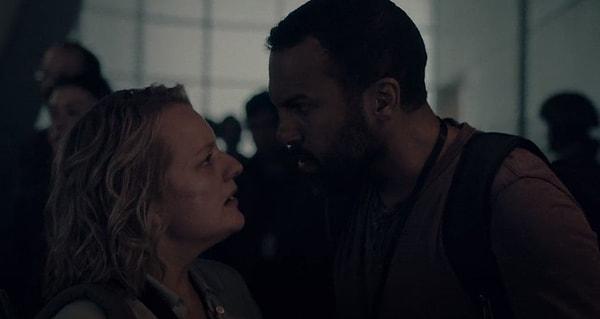
Courtesy of Hulu
Going Forward
Without Luke, June wouldn't have survived the most recent finale. He stopped her assassin. He dragged the man out of the car and beat him to death. Nobody can say that he is weak, either mentally or physically. He was by her side, body, mind, and spirit, and he did what needed to be done. He even turned himself in to protect her so she could get on the train safely. But he has a fatal flaw.
He's never experienced Gilead. He didn't know what it meant to be a citizen of a totalitarian regime. He'd never been caged or beaten by guardians, and he didn't know how to react when he was. Often when people are incarcerated for the first time, they try to find any way that they possibly can possibly fight and escape. It's like a dog stuck in a kennel scratching at the bars to get out. They can't accept the situation they are in. That's why, when they realize they can't get out, they start to whine. Humans will yell and beg the guards to let them out. It's an almost uniform response. Eventually, when they realize they are trapped, they'll give up and keep quiet. That's how you survive Gilead. You do as you're told. You stop fighting, and you find ways to cope.
He's now living in a world where authoritarian governments have taken over, and people are being forced to either obey or face the consequences. The United States wasn't the only country that changed. Canada took on much of Gilead's cultural views and some of their laws. He's going to be subjected to a very different regime now that he is incarcerated, and he's going to have to learn to survive that environment.
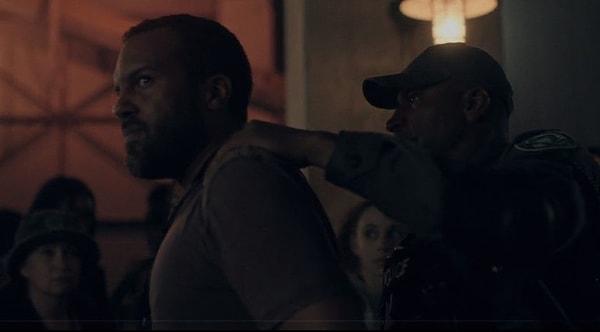
Courtesy of Hulu
Many people believe that Luke's final act of devotion will get him killed. Like Moira said, there were a lot of people in Canada who would kill him for what he did to June's assassin. We don't know if he will die. Jail in Atwood's universe would be a haven for bigotted nationalists and pro-Gilead extremists. But it won't happen fast. He has a journey to go on. He'll also have legal help. Moira stayed behind, and like June said when she turned herself in, she can contact lawyers.
He might not be convicted. He was defending June's life. He could go free. While he's in jail, he might actually learn the coping mechanisms that he needs to handle these types of situations. It could help him grow. It seems like he needs to face real danger and real authoritarian figures in order to come into his own as a character.
Fans are often quick to point out that while Luke isn't mentioned by name in the Testaments, it's made clear that he is still alive. This may or may not matter. Bruce Miller hasn't spoken about Luke's fate. But he has said many times that he doesn't want to follow the Testaments exactly. He's going to make the new spin-off a sequel to his show. He also said that he has a habit of telling us what's going to happen. He doesn't like to shock us with unexpected events. So he may have already sealed Luke's fate. We will just have to wait until the next premiere to see. It could go either way.
Keşfet ile ziyaret ettiğin tüm kategorileri tek akışta gör!

Send Comment
Yeah well, no, speaking for the other half of the population, when a woman thinks of love, in 'our' culture or another, she doesn't think of fucking.